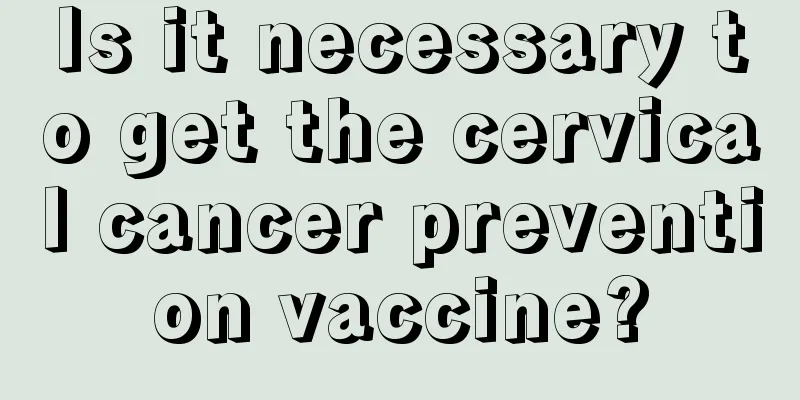Is it necessary to get the cervical cancer prevention vaccine?

|
HPV vaccine is necessary, especially for women aged 9-26, to effectively prevent high-risk HPV infection and reduce the incidence of cervical cancer. Vaccination is an important means of preventing cervical cancer, and combined with regular screening and a healthy lifestyle, it can further reduce the risk. 1. The role of HPV vaccine HPV vaccines are mainly targeted at human papillomavirus (HPV) infections, especially high-risk HPV types 16 and 18, which are associated with more than 70% of cervical cancer cases. The vaccine stimulates the immune system to produce antibodies to prevent HPV infection, thereby reducing the risk of cervical cancer. Currently, the common HPV vaccines on the market include bivalent, quadrivalent, and nine-valent vaccines, which cover slightly different virus types and applicable populations. 2. Applicable population for HPV vaccination The World Health Organization recommends that girls aged 9-14 be given priority for HPV vaccination because the immune response is stronger and more effective in this age group. Vaccination is also recommended for women under 26 years old. Even if they have sexual intercourse or have been infected with a certain HPV type, the vaccine can still prevent other uninfected virus types. HPV vaccination for men can also help reduce the spread of HPV and prevent related diseases such as genital warts and anal cancer. 3. Safety of HPV vaccines After years of clinical trials and practical applications, the safety of HPV vaccines has been widely recognized. Common adverse reactions include pain, redness, swelling, or mild fever at the injection site, which usually disappear on their own within a few days. Serious adverse reactions are extremely rare. Before vaccination, you can consult to find out whether your health condition is suitable for vaccination. 4. Other preventive measures In addition to vaccination, regular cervical cancer screening such as TCT and HPV testing is also an important measure to prevent cervical cancer. A healthy lifestyle, such as quitting smoking, eating a balanced diet, and enhancing immunity, can also reduce the risk of disease. Cervical cancer prevention vaccine is an effective means of preventing cervical cancer. It is recommended that people of appropriate age be vaccinated as early as possible. Combined with regular screening and health management, the risk of cervical cancer can be minimized. |
<<: What causes prostate cancer
>>: How long can you live with metastatic brain cancer
Recommend
What is the correct way to wash your face with white vinegar?
Everyone should pay attention to the issue of bea...
The best medicine to lower blood sugar after meal
People's physical health is very important, b...
What are the principles of exercise for people with teratoma
Teratoma is closely related to daily life, so you...
What are the complications of late-stage nasopharyngeal carcinoma?
After nasopharyngeal carcinoma surgery, everythin...
Will you go blind if you have pterygium in your eyes?
If you find pterygium growing in your eyes, you m...
Can advanced brain cancer be cured?
Can advanced brain cancer be cured? Intracranial ...
What medicine is the best for reflux esophagitis
Reflux esophagitis is a common internal digestive...
The cold-dispelling reaction after pushing the abdomen
After a winter full of festivals, female friends ...
What are the early symptoms of liver cancer? 7 early symptoms of liver cancer you should know
In an era when various diseases are prevalent, we...
Can skin cancer be inherited?
With the improvement of people's living stand...
What are the early stage diseases of lung tumor
Lung tumors are mostly malignant tumors, also kno...
How long should you exercise after a meal?
Many people like to exercise immediately after a ...
What is the diet to prevent prostate cancer?
Diet plays a certain role in the prevention of pr...
Can mealworms be eaten?
Perhaps many people don’t know what mealworms are...
What are the symptoms and manifestations of skin cancer
Since many patients do not know enough about skin...









